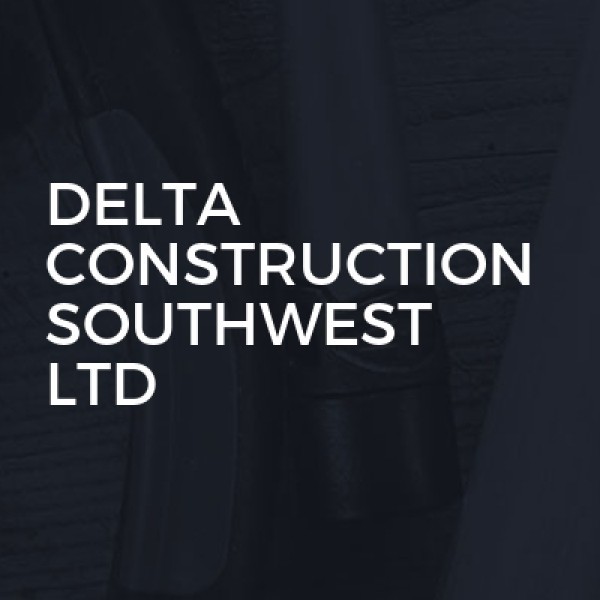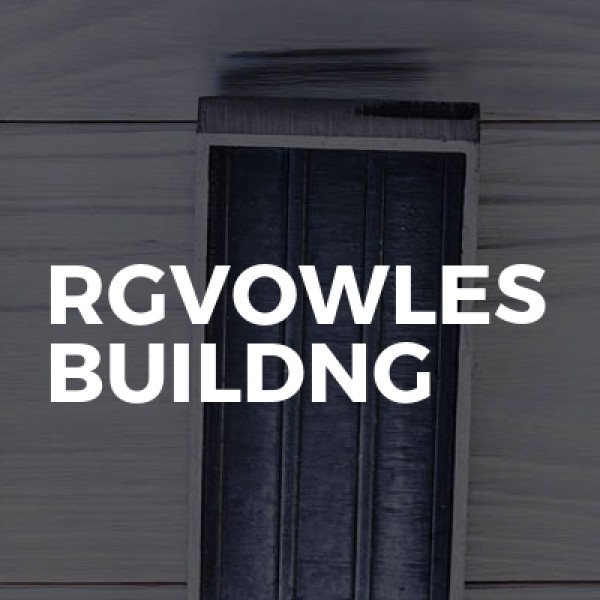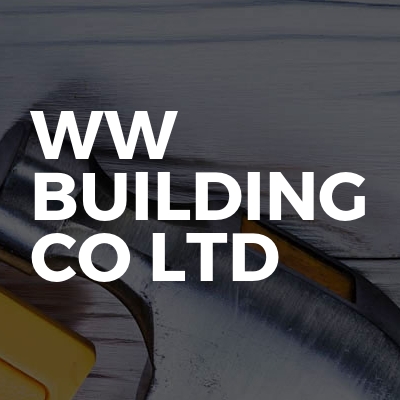Extension Builders in Somerton
Welcome to Site-Lines Installations, your go-to experts for all building and renovation needs in Somerset. Proudly based in Northend, we... read more »
Welcome to PL Kitchens & Bedrooms, the premier choice for kitchen and bedroom transformations in St Georges, Somerset. Our expert team of... read more »
R&F Construction, a renowned name in the heart of Wells, is your go-to solution for all your building a... read more »
Delta Construction Southwest Ltd: Your Trusted Builders in Ruishton and Somerset
Welcome to Delta Construction S... read more »
GENERATIONS: Your Trusted Tradespeople in Somerset
Welcome to GENERATIONS, a reputable Britten's-based business... read more »
Welcome to Rose Masonry, your go-to experts for Builders, Extension Builders, and Bricklayers in Wincanton and throughout Somer... read more »
Margetts & Walker Construction Ltd, nestled in the picturesque Frieze Hill, Somerset, stands as a beacon of excellence i... read more »
Welcome to The Orange Room Conservatories, your premier choice for builders, roofers, double glazing, conservatories, renovations, extens... read more »
S&R Construction (South West) Limited is a premier choice for all your construction needs in New Town, Somerset<... read more »
Welcome to RG Vowles Building, your go-to experts for all construction needs in Yarrow and throughout Somerset. As a leading provider of... read more »
WW Building Co Ltd is a reputable and trusted company based in the heart of Priorswood, offering a comprehensive range o... read more »
Welcome to Tobias Design&Build, your trusted partner for all your construction and landscaping needs in Weston and across Somerset. As a... read more »
Welcome to B S Building Ltd, your trusted partner for exceptional building services in Wearne and the picturesque county of Somerset. As... read more »
Welcome to NL Thomas Building Contractors, your go-to... read more »
Welcome to Colin Clarke Building & Roofing Contractor... read more »
Welcome to Somerset Loft Conversions, your trusted pa... read more »
Welcome to Ed Bartlett Building Contractor, your go-t... read more »
Welcome to Creative Developments SW Limited, your go-... read more »
John Cox General Builders Ltd is a p... read more »
Search Extension Builders in places nearby
Understanding the Role of Extension Builders in Somerton
When it comes to enhancing your home, extension builders in Somerton play a pivotal role. These professionals are skilled in transforming spaces, adding value, and improving the functionality of homes. Whether you're looking to add a new room, expand your kitchen, or create a home office, extension builders are the experts you need. Let's delve into the world of extension builders and explore how they can help you achieve your dream home.
The Importance of Home Extensions
Home extensions are more than just additional spaces; they are investments in your property's future. They provide the extra room needed for growing families, offer a chance to modernise older homes, and can significantly increase the market value of your property. In Somerton, where space can be at a premium, extensions offer a practical solution to space constraints without the need to relocate.
Benefits of Home Extensions
- Increased Living Space: Extensions provide more room for living, working, or leisure activities.
- Enhanced Property Value: A well-executed extension can boost your home's market value.
- Customisation: Tailor your home to suit your lifestyle and personal taste.
- Avoid Moving Costs: Save on the expenses and stress associated with moving house.
Choosing the Right Extension Builder in Somerton
Selecting the right builder is crucial to the success of your extension project. With numerous options available, it's essential to choose a builder with a proven track record, relevant experience, and a commitment to quality.
Key Considerations When Hiring
- Experience and Expertise: Look for builders with extensive experience in similar projects.
- Reputation: Check reviews and testimonials from previous clients.
- Licensing and Insurance: Ensure the builder is fully licensed and insured.
- Transparent Pricing: Obtain detailed quotes and ensure there are no hidden costs.
Planning Your Home Extension
Before breaking ground, careful planning is essential. This phase involves defining your goals, setting a budget, and obtaining necessary permissions. Working closely with your builder during this stage ensures that your vision is realised within your constraints.
Steps in the Planning Process
- Define Your Objectives: Determine what you want to achieve with the extension.
- Set a Budget: Establish a realistic budget that includes a contingency fund.
- Design and Layout: Work with architects to create a design that complements your existing home.
- Obtain Permissions: Secure planning permissions and adhere to local building regulations.
Types of Home Extensions
There are various types of home extensions, each serving different purposes and offering unique benefits. Understanding these options can help you make informed decisions about your project.
Popular Extension Types
- Single-Storey Extensions: Ideal for expanding kitchens or living areas.
- Double-Storey Extensions: Perfect for adding bedrooms or bathrooms.
- Wrap-Around Extensions: Combine side and rear extensions for maximum space.
- Conservatories and Orangeries: Add light-filled spaces for relaxation.
Designing Your Extension
The design phase is where creativity meets practicality. Collaborating with architects and designers ensures that your extension is not only functional but also aesthetically pleasing.
Design Considerations
- Harmony with Existing Structure: Ensure the extension complements the original architecture.
- Natural Light: Maximise the use of windows and skylights.
- Energy Efficiency: Incorporate sustainable materials and energy-saving technologies.
- Future-Proofing: Design with future needs and potential changes in mind.
The Construction Process
Once planning and design are complete, the construction phase begins. This stage involves the physical building of the extension, requiring skilled labour and careful project management.
Stages of Construction
- Site Preparation: Clear the area and prepare the foundation.
- Structural Work: Build the framework and install essential systems.
- Interior Finishing: Complete the interior with flooring, walls, and fixtures.
- Final Inspection: Ensure everything meets safety and quality standards.
Managing Your Extension Project
Effective project management is key to a successful extension. It involves coordinating various tasks, managing timelines, and ensuring quality control throughout the process.
Tips for Successful Project Management
- Regular Communication: Maintain open lines of communication with your builder.
- Timeline Management: Keep track of milestones and adjust plans as needed.
- Quality Assurance: Conduct regular inspections to ensure high standards.
- Problem Solving: Be prepared to address issues promptly and effectively.
Budgeting for Your Extension
Budgeting is a critical aspect of any extension project. It involves estimating costs, allocating funds, and managing expenses to avoid overspending.
Budgeting Tips
- Detailed Estimates: Obtain comprehensive quotes from builders.
- Contingency Fund: Set aside extra funds for unexpected expenses.
- Cost-Effective Solutions: Explore alternative materials and methods to save money.
- Regular Monitoring: Keep track of expenses and adjust the budget as necessary.
Legal Considerations for Extensions
Legal aspects are an integral part of the extension process. Understanding and complying with local regulations is essential to avoid legal issues and ensure a smooth project.
Key Legal Aspects
- Planning Permission: Determine if your project requires permission and apply accordingly.
- Building Regulations: Ensure compliance with safety and structural standards.
- Party Wall Agreements: Address any shared wall issues with neighbours.
- Contractual Agreements: Have a clear contract with your builder outlining terms and conditions.
Post-Construction Considerations
After construction, there are several factors to consider to ensure your extension remains in top condition and serves its intended purpose.
Post-Construction Tips
- Regular Maintenance: Schedule routine checks and maintenance tasks.
- Interior Design: Furnish and decorate the new space to suit your style.
- Energy Efficiency: Monitor energy usage and make adjustments as needed.
- Feedback and Evaluation: Reflect on the project and gather feedback for future improvements.
Frequently Asked Questions
- How long does a typical home extension take? The duration varies depending on the size and complexity of the project, but most extensions take between three to six months.
- Do I need planning permission for an extension? It depends on the size and location of the extension. It's best to consult with local authorities or your builder.
- How can I ensure my extension is energy efficient? Use energy-efficient materials, incorporate insulation, and consider renewable energy sources.
- What should I look for in an extension builder? Experience, reputation, licensing, and transparent pricing are key factors to consider.
- Can I live in my home during the extension process? In many cases, yes, but it may depend on the extent of the work being done.
- How do I manage my extension budget effectively? Obtain detailed estimates, set a contingency fund, and monitor expenses regularly.
Final Thoughts on Extension Builders in Somerton
Extension builders in Somerton are invaluable partners in transforming your home into a space that meets your needs and aspirations. By understanding the process, choosing the right professionals, and managing your project effectively, you can achieve a successful home extension that enhances your living experience and adds value to your property. With careful planning and execution, your dream home is within reach.
Send a message

















